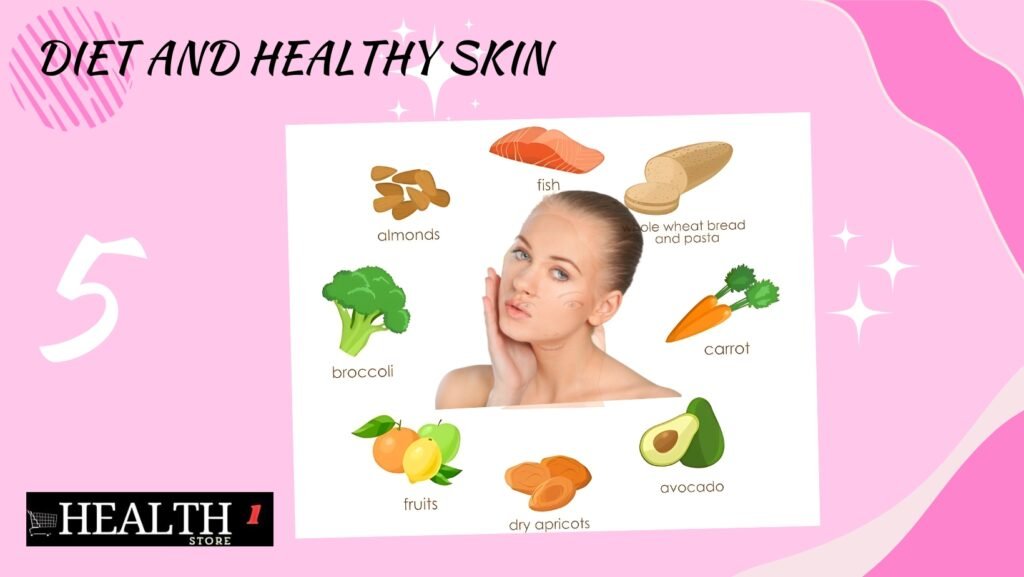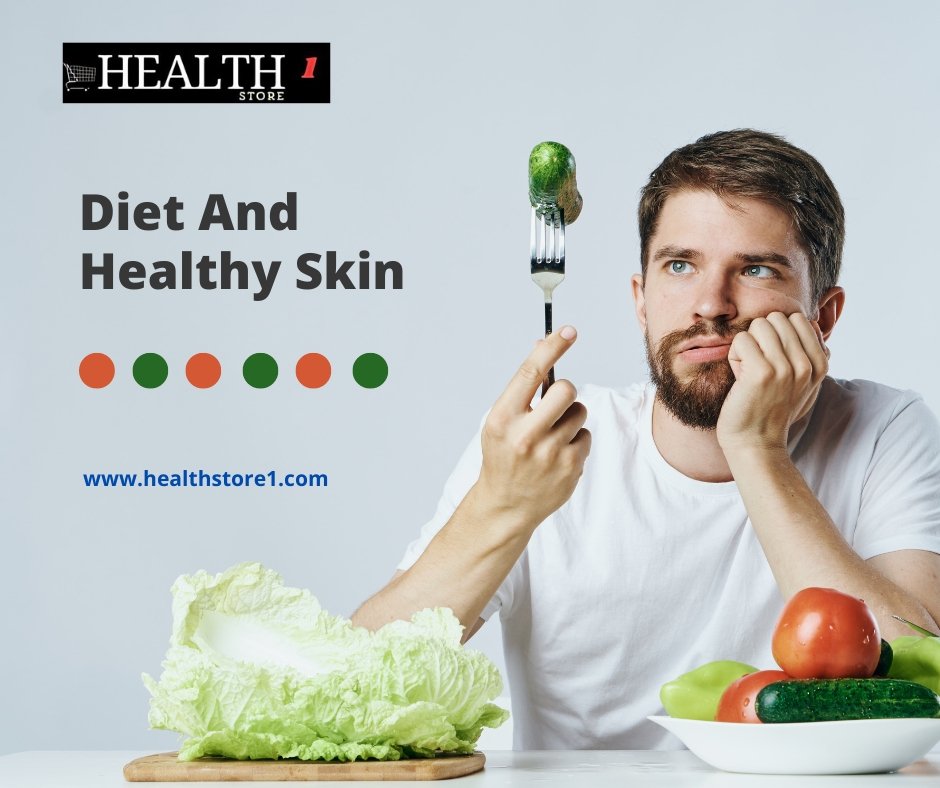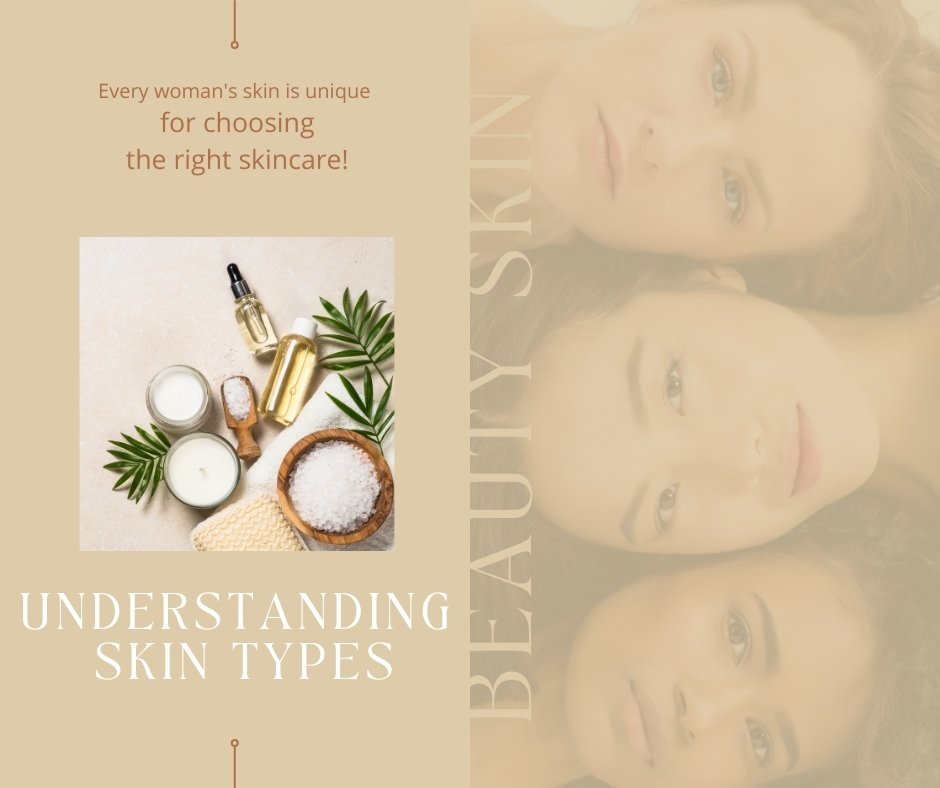Introduction of Diet And Healthy Skin
The saying “you are what you eat” is particularly relevant when it comes to skin health. While skincare routines and topical treatments play a vital role in maintaining a radiant complexion, the foods you consume can have a significant impact on your skin’s appearance and health. This article explores the connection between diet and skin health, focusing on specific foods that can enhance your complexion, prevent skin issues, and promote a natural glow.
Table of Contents

Diet And Healthy Skin
Nutrients and Their Effects on Skin:
- Antioxidants: These compounds protect the skin from damage caused by free radicals, which can accelerate aging and cause dullness. Antioxidants are found in various fruits, vegetables, and nuts.
- Vitamins: Vitamins A, C, E, and D are crucial for maintaining healthy skin. Vitamin C, for example, supports collagen production, while Vitamin E protects against UV damage.
- Healthy Fats: Omega-3 and omega-6 fatty acids help maintain the skin’s lipid barrier, keeping it hydrated and supple.
- Proteins: Amino acids, the building blocks of proteins, are essential for collagen and elastin production, which keep the skin firm and elastic.
- Water: Proper hydration is key to maintaining skin moisture and elasticity.
| Nutrient | Skin Benefit | Food Sources |
|---|---|---|
| Antioxidants | Protects against free radicals | Berries, dark chocolate, nuts |
| Vitamin C | Boosts collagen production | Citrus fruits, bell peppers, broccoli |
| Vitamin E | Protects against UV damage | Almonds, sunflower seeds, spinach |
| Omega-3 Fatty Acids | Maintains lipid barrier | Fatty fish, flaxseeds, walnuts |
| Protein | Supports collagen and elastin production | Lean meats, eggs, legumes |
| Water | Hydrates skin, maintains elasticity | Water, fruits with high water content |
Foods That Promote Healthy skin (Diet And Healthy Skin)
- Fruits and Vegetables:
- Berries: Rich in antioxidants, berries like blueberries, strawberries, and raspberries help combat free radical damage, reducing the signs of aging and promoting a vibrant complexion.
- Citrus Fruits: High in vitamin C, oranges, lemons, and grapefruits support collagen production, improving skin texture and elasticity.
- Leafy Greens: Spinach, kale, and other leafy greens are packed with vitamins A and E, which help repair skin damage and protect against environmental stressors.
- Tomatoes: containing lycopene, a powerful antioxidant, tomatoes help protect the skin from UV damage and improve skin texture.
- Healthy Fats:
- Avocados: These are rich in healthy monounsaturated fats and vitamin E, which help keep the skin hydrated and protect against oxidative damage.
- Nuts and Seeds: Almonds, walnuts, and flaxseeds are excellent sources of omega-3 fatty acids and vitamin E, which maintain skin moisture and reduce inflammation.
- Proteins:
- Lean Meats and Fish: Protein-rich foods like chicken, turkey, and salmon provide the amino acids necessary for collagen production, keeping the skin firm and reducing wrinkles.
- Legumes: Beans, lentils, and chickpeas are plant-based protein sources that also contain zinc, which helps regulate oil production and reduce acne.
- Hydration:
- Water: Drinking sufficient water daily is essential for keeping the skin hydrated and flushing out toxins, resulting in a clear and glowing complexion.
- Cucumber and Watermelon: These fruits have high water content and are excellent for maintaining skin hydration.
The Impact of Poor Diet (Diet And Healthy Skin)
A diet lacking in essential nutrients can lead to various skin issues, including dryness, acne, and premature aging. For example, a diet high in processed foods and sugar can increase insulin levels, leading to inflammation and acne. Additionally, a deficiency in omega-3 fatty acids can result in dry, flaky skin, while a lack of antioxidants may lead to a dull complexion and increased signs of aging.
Common Diet-Related Skin Issues:
- Acne: High-glycemic-index foods, such as white bread and sugary snacks, can spike insulin levels, leading to increased oil production and acne breakouts.
- Dryness: A diet low in healthy fats and hydration can cause dry, flaky skin.
- Premature Aging: Insufficient intake of antioxidants and vitamins can accelerate the aging process, leading to wrinkles, fine lines, and a loss of skin elasticity.
| Skin Issue | Dietary Cause | Foods to Avoid |
|---|---|---|
| Acne | High-glycemic-index foods leading to increased insulin | Sugary snacks, white bread, sodas |
| Dryness | Lack of healthy fats and hydration | Processed foods, low-fat diets |
| Premature Aging | Insufficient antioxidants and vitamins | Fast food, trans fats, processed meats |
Statistics (Diet And Healthy Skin)
Recent studies highlight the significant statistics about “Diet and Healthy Skin”:
- Diet and Acne: A study published in the Journal of the Academy of Nutrition and Dietetics found that individuals who consumed high-glycemic foods were 30% more likely to suffer from acne.
- Omega-3 and Aging: Research in Dermato-Endocrinology shows that individuals with higher intake of omega-3 fatty acids have a 25% lower risk of developing signs of premature aging.
- Vitamin C and Skin Health: According to a study in The American Journal of Clinical Nutrition, women who consumed higher amounts of vitamin C had a 34% reduction in the likelihood of developing wrinkles and dry skin.
| Study Topic | Key Findings |
|---|---|
| Diet and Acne | High-glycemic foods increase acne risk by 30% |
| Omega-3 and Aging | Higher omega-3 intake reduces premature aging by 25% |
| Vitamin C and Skin | Increased vitamin C intake reduces wrinkles by 34% |
Practical Tips (Diet And Healthy Skin)
- Incorporate antioxidant-rich foods:
- Include a variety of colorful fruits and vegetables in your diet to ensure you get a broad spectrum of antioxidants that protect and nourish the skin.
- Prioritize Hydration:
- Drink at least 8 glasses of water a day and eat water-rich fruits and vegetables to maintain skin hydration.
- Balance Your Fats:
- Focus on consuming healthy fats like those found in avocados, nuts, and fatty fish while reducing trans fats and unhealthy oils.
- Limit sugary and processed foods.
- Reduce the intake of high-glycemic index foods to prevent insulin spikes that can lead to acne and other skin issues.
- Supplement When Necessary:
- If you struggle to get enough nutrients from your diet, consider supplements for vitamins like C, E, and D, as well as omega-3 fatty acids.
Conclusion of Diet And Healthy Skin
The topic of “Diet and Healthy Skin” is a vital one. Diet plays a crucial role in the health and appearance of your skin. By incorporating nutrients-rich foods, staying hydrated, and avoiding processed foods, you can promote a glowing, healthy complexion from the inside out. While topical skincare is important, what you eat can be just as impactful, if not more so, in achieving radiant and youthful skin. Remember, a balanced diet rich in antioxidants, vitamins, healthy fats, and hydration is key to maintaining a beautiful complexion.




